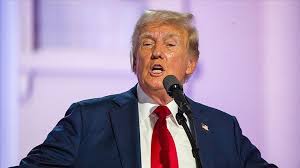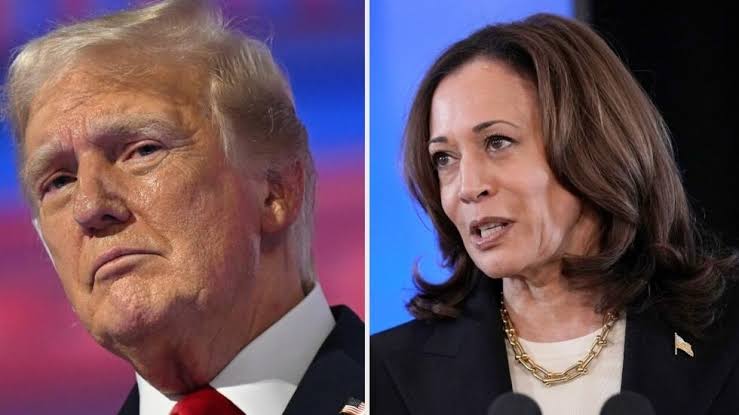Trump Questions Kamala Harris’s Identity: Controversial Comments Spark Outrage
In a contentious interview, former President Donald Trump questioned the racial and ethnic identity of Vice President Kamala Harris, asking whether she is “Indian or Black.” Trump’s remarks, made during an appearance at the National Association of Black Journalists’ annual convention, have sparked outrage and condemnation, with the White House labeling them as “repulsive” and “insulting.”
Trump’s comments come as he positions himself as a potential candidate for the 2024 Republican presidential nomination. During the interview, Trump claimed to have “indirectly” known Harris for a long time, suggesting that her background was ambiguous. This insinuation was widely criticized as an attempt to undermine Harris’s legitimacy and identity, given her mixed heritage as the daughter of an Indian mother and a Jamaican father.
The White House quickly responded to Trump’s remarks, calling them an attack on Harris’s identity and heritage. A spokesperson for the Biden administration stated, “It is repulsive and insulting for the former president to question Vice President Harris’s identity in this manner. This rhetoric is designed to divide and distract from the real issues facing our country.

The debate heats up: Trump’s comments on Vice President Harris’s racial identity draw widespread criticism and fuel discussions on inclusivity.
The controversy surrounding Trump’s comments highlights the ongoing challenges faced by politicians of diverse backgrounds in the United States. Vice President Harris, as the first woman of color to hold the office, has often been subjected to scrutiny and questions about her identity. Her dual heritage is a source of pride for many, representing the multicultural fabric of the nation.
Critics argue that Trump’s remarks are part of a broader pattern of racially insensitive and divisive language that has characterized his political career. They contend that such comments are intended to sow discord and appeal to certain voter bases by casting doubt on the authenticity of political figures from minority backgrounds. This strategy, they argue, undermines the principles of inclusion and representation that are fundamental to American democracy.
Supporters of Trump, however, may view his comments as a candid expression of concerns about political figures and their authenticity. They often praise Trump’s direct style and willingness to question the status quo. However, even among his supporters, there is concern that such remarks could alienate voters who value diversity and inclusivity.
The incident also underscores the role of identity politics in contemporary American elections. As the country becomes increasingly diverse, issues of race, ethnicity, and identity are becoming central to political discourse. Politicians’ backgrounds and personal stories are not just personal attributes but are also seen as reflective of broader societal values and challenges.

Trump’s questioning of Kamala Harris’s identity sparks controversy and backlash, as the White House calls the remarks ‘repulsive.
In conclusion, former President Donald Trump’s recent questioning of Vice President Kamala Harris’s racial and ethnic identity has ignited controversy and backlash. The remarks, made during a high-profile interview, have been criticized as divisive and insulting. This incident highlights the complex and often contentious nature of identity politics in the United States, particularly as the country prepares for the 2024 presidential election. As the debate continues, it remains crucial for public discourse to focus on unity and respect for all individuals’ diverse backgrounds and experiences.